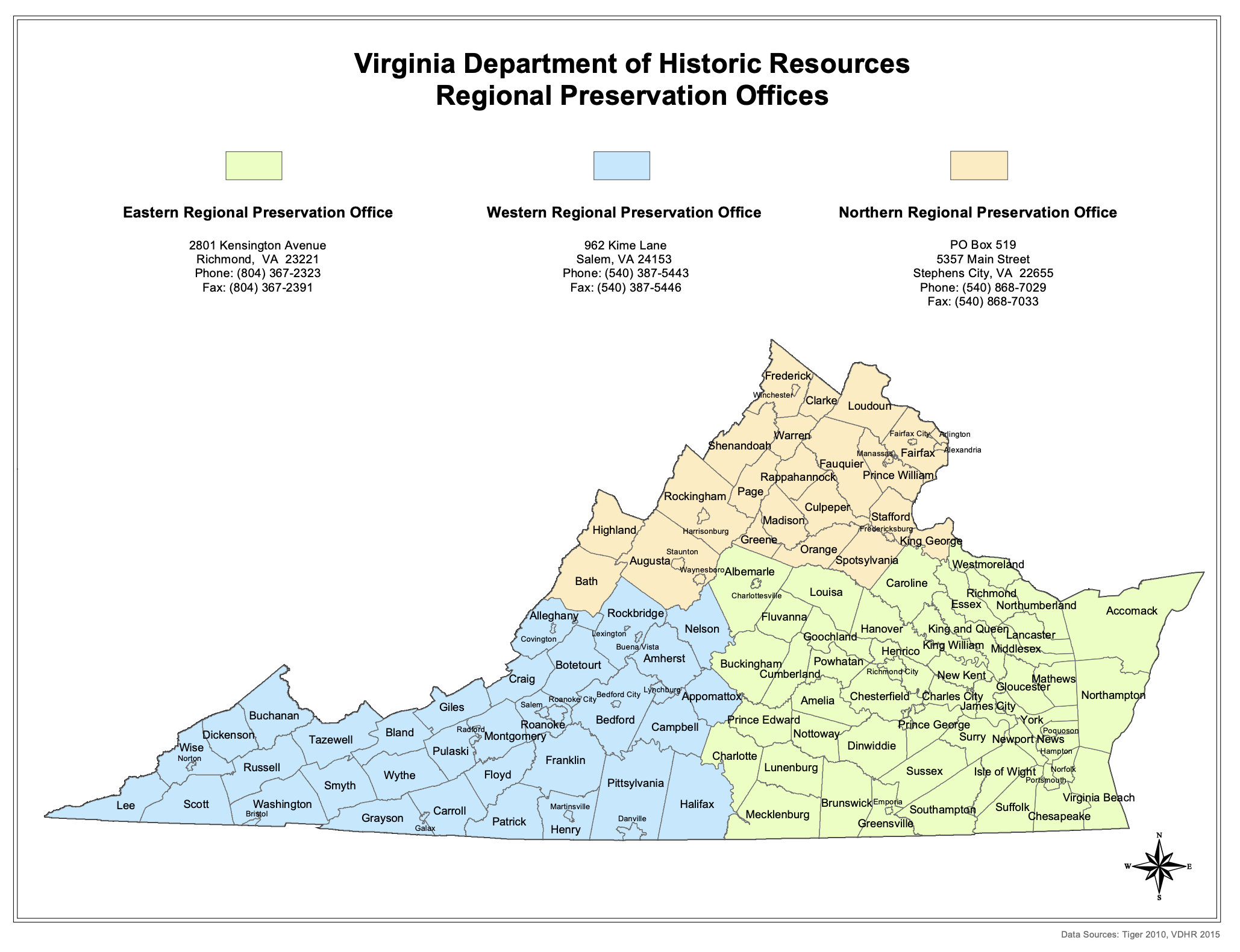Most of the department’s archaeological survey, field, and technical assistance activities are conducted from our three regional offices. If you have questions pertaining to local archaeology, need help identifying or managing an archaeological site, or require educational information or speakers about area archaeology, contact the archaeologist who serves your region. Please consult the map below to identify the regional archaeologist in your area.
Regional Archaeology Programs: Most of the department’s archaeological survey, field, and technical assistance activities are conducted from our three regional offices. If you have questions pertaining to local archaeology, need help identifying or managing an archaeological site, or require educational information or speakers about area archaeology, contact the archaeologist who serves your region:

Conservation encompasses all those actions taken toward the long-term preservation of cultural heritage. Activities include examination, documentation, treatment, and preventive care, supported by research and education.” American Institute for Conservation (AIC). For more information about conservation, conservators, and what they do, visit the AIC website at: https://www.culturalheritage.org/about-conservation/what-is-conservation
It can be difficult to give advice about artifact care without seeing the artifact. Please email an image of the object with something to give a sense of scale (ruler, coin, pencil) and a description of the preservation concern to katherine.ridgway@dhr.virginia.gov. Staff reply to inquiries within a working week to the best of their abilities. Another way to find a conservation practitioner to care for your object is to contact the American Insitute for Conservation at 202-452-9545 or use their Find a Conservator tool here: https://www.culturalheritage.org/about-conservation/find-a-conservator
Make sure that you have permission from the owner of the cemetery and the marker(s) before doing any work. Please remember that historic gravestones need special care. Those who work with and make modern grave markers are not necessarily the best prepared to work with older markers. Please email an image of the gravemarker with something to give a sense of scale (yard stick, person, your hand) and a description of the preservation concern to katherine.ridgway@dhr.virginia.gov. Staff reply to inquiries within a working week to the best of their abilities. Another way to find a conservation practitioner to care for your grave marker is to contact the American Insitute for Conservation at 202-452-9545 or use their Find a Conservator tool here: https://www.culturalheritage.org/about-conservation/find-a-conservator. For more information on cemeteries in Virginia click here.
If it is an emergency call 911. If you think you are dealing with a case of poisoning call poison control at (800) 222-1222. For other questions about historic materials that may cause harm to you or others, please email katherine.ridgway@dhr.virginia.gov. Staff reply to inquiries within a working week to the best of their abilities. Items that might be hazardous include but are not limited to: artifacts containing heavy metals (lead, arsenic, mercury, etc.); live ordnance (grenades, military shells, bombs, etc.), some historic fire suppression devices (fire grenades, hand-grenade fire extinguisher, any fire suppression that uses carbon tetrachloride), radioactive materials (radium, uranium, etc.)
If you would like to make sure that your artifacts are stored using archival materials, there are numerous vendors who can supply these materials. Talas Art Conservation Supplies, University Products Museum Quality Archival Supplies, Gaylord Archival, Archival Methods, Hollinger Metal Edge, and many others. If you have specific questions or concerns, please email katherine.ridgway@dhr.virginia.gov. Staff reply to inquiries within a working week to the best of their abilities.
iFrames are not supported on this page.
Programs
DHR has secured permanent legal protection for over 700 historic places - including 15,000 acres of battlefield lands
DHR has erected 2,532 highway markers in every county and city across Virginia
DHR has registered more than 3,317 individual resources and 613 historic districts
DHR has engaged over 450 students in 3 highway marker contests
DHR has stimulated more than $4.2 billion dollars in private investments related to historic tax credit incentives, revitalizing communities of all sizes throughout Virginia
Copyright © 2023. All Rights Reserved | Website by CURE